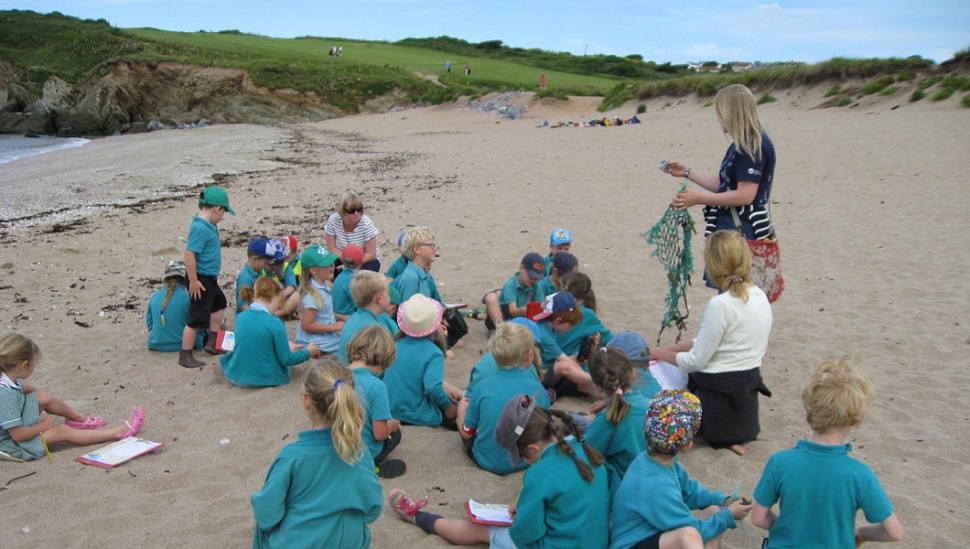Where science and creativity collide to improve the future of education...
In this interview, we catch up with Dr. Juliette Jackson, professional scientist, passionate advocate of STEM inclusivity and founder of non-profit CIC, Seadream Education.
Dr. Jackson and her team enrolled on the Creative England Ideate Plymouth programme, which is a growth initiative designed to accelerate burgeoning immersive products and experiences in and around Plymouth. As a result, Seadream has been producing some exciting immersive projects as part of its plight to “instil passion, awe, knowledge, understanding and respect for the world around us”, through primary and secondary education, alongside public awareness-raising and charity events.
Tell us more about Seadream Education and how it came to be…
Dr. Jackson: Seadream is actually the name of my sailing boat. I was sat on the boat trying to think of a name for a company that does Science and Engineering Activities, Discovery, Research, Education And More!
I had been working at the University of Plymouth for around 10 years, with some wonderful colleagues, and sadly my mum was diagnosed with dementia and Alzheimer’s and I needed to spend more time with the family. I had quite a lot of experience writing funding applications and delivering science in schools. So I talked to my colleagues about the idea of starting a company to do this, starting at the school where my children attended – and these colleagues were so enthusiastic that they became co-directors of Seadream.
Since it’s inception in 2017, Seadream has grown to create a greater impact year on year and reaching out to wider and more diverse audiences. Seadream aims to bring exciting science and engineering outreach to instil passion, awe, knowledge, understanding and respect for the world around us. During 2019, we delivered 39 workshops to over 2025 pupils and engaged with over 12000 members of the public during eight events.
Can you tell us more about your involvement with Ideate Plymouth?
Dr. Jackson: When we applied for the Ideate Plymouth programme we were keen to get footage of our own activities and we wanted to produce a series of immersive education resources with different themes, including ocean discover, Plymouth maritime heritage, biodiversity of life, and science, technology, and engineering careers.
Our mentor, Seth White from Volume AI, has been fantastic in helping us understand the stages in the process of creating resources for use in a VR headset with user-controlled options and for display in the new Plymouth Market Hall dome.
I also found that our Creative England link listened and helped us in other areas of business that needed some support – mainly in social media.
What doors did Ideate Plymouth open to you?
Dr. Jackson: We secured funding for equipment such as the 360 camera, drone, high spec PC and monitor, and are currently collecting material for Volume AI to create a proof-of-concept piece for Seadream.
What is it that fascinates you most about the crossover between science and creativity?
Dr. Jackson: There is so much beauty in science. From the most detailed images of a human cell to the global images taken from out of space; from the tiny ripples on the pond to the biggest waves in the ocean; the colours, shape, form – the beauty in science is just endless.
Where do you find your inspiration?
Dr. Jackson: I find inspiration all around us and within us. I am the youngest of four siblings. My mum and eldest brother and sister all worked at Paignton aquarium so during the summer holidays, I had the luxury of ‘Fairy Cove’ to explore the natural wonders of the intertidal. I was also paid 50p for a bucket of fish, crab or octopus food and in my searching, I found the natural world inspiring. Wherever I find myself, I seek out natural habitats and like many scientists and engineers. I find the natural world so inspiring.
How do you think immersive resources will change the future of education?
Dr Jackson: I think immersive resources are a huge part of future education at all age levels and for multi-disciplines, right up to highly professional training packages.
Tell us more about your passion for increasing accessibility in STEM…
Dr. Jackson: Our volunteer directors are three female doctorates that are passionate about inclusivity and accessibility to fun and meaningful Science, Technology, Engineering, Art and Maths (STEAM). As proactive women in science, we deliver inspiring activities across the Southwest that shatter gender stereotypes and promote environmental stewardship. We increase confidence, develop skills, break down barriers and lead by example.
What advice would you give to other scientists looking to unlock their own creative side?
Dr. Jackson: Give yourself some time to try something different that is not everyday ‘work’. Explore the countryside, even if it’s a small area of wasteland that holds pockets of habitats. Walk across a bridge that you might normally drive across and admire its construction; imagine when it was built and what the conditions were like then. Study a map of your local area and go in search of a new feature to appreciate. Take a different route on a routine journey or park somewhere different so that you can walk a little way in a new place.
To find out more about Seadream, head to seadreameducation.com.
For more information about our Ideate Plymouth programme, click here. Applications are now open and we’re on the hunt for creatives with fresh, new immersive ideas they want to get off the ground.
This activity is part of the iMayflower project and has been supported by The Department for Digital, Culture, Media and Sport who fund the Cultural Development Fund which is administered by Arts Council England.
